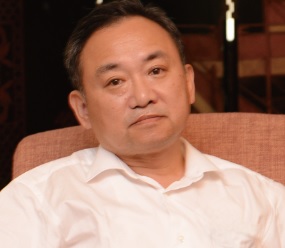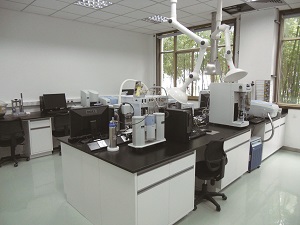As China faces challenges in its economic growth and performance, the country’s plastics industry has to overcome some factors that could affect the industry’s future prospects. The industry has not been spared from rising costs, overcapacity, concerns on resources management and unmet demand for highly skilled manpower. As a result, plastics manufacturers are finding ways to sustain growth and boost the industry’s continuous development. International Plastics News for Asia (IRNA) talks to Mr. JW Qin, Secretary-General of the Plastics Industry Association (Shanghai China) on the current situation of the plastics industry in China and what the future has in store for those engaged in plastics manufacturing.

Mr. JW Qin, Secretary-General of the Plastics Industry Association (Shanghai China)
IRNA: What do you think are the factors that have affected the growth of the plastics industry in China?
Mr. Qin: According to the China Statistic Department, in the first half of 2016, net income of 561 plastics processing companies (with over RMB 20 million annual revenue) fell 3.7% in average and 163 of them dropped 29%. Although the overall income of these companies still increased 1.4% compared to the same period last year, the number of companies that recorded profits was reduced and their profitability declined.
There are three major factors stunting the growth of the plastics industry. First, and most important, plastics machinery and materials production depends very much on the performance of the application sectors. These sectors include automotive, electrical appliance, consumer electronics and construction. In 2015, car manufacturers experienced overstocking, thus posting declining sales and shrinking profits that consequently hurt suppliers. The construction industry requires a large amount of plastics for various items such as doors, frames, windows, pipes, wires, tubes, etc recently slows down. These two slow performing sectors have been exacerbating the current plastics industry.
Second, new government policies and regulations pertaining to environmental protections have become stricter as the government aims to upgrade the industry’s standard. Although policies and regulations can produce substantial and long-lasting benefits, the transition period of industry upgrade inevitably brings pain to the industry. For instance, in Shanghai China, according to the Furniture Industry Association, in the first half of this year, over 1,000 furniture companies closed because they failed to meet the new regulations.
Similar cases are also found in other application sectors. In July this year, a well-know air-conditioning manufacturer sought consultation from the Plastics Industry Association as it was informed that the emission of its four injection molding machines was not able to meet the new regulations. The association found that some manufacturers move to the other regions or countries where environmental regulations are less stringent. Consequently, demand for plastics machinery and materials declined in some areas. We hope that the transition period will not last long and that the government will further help ease the pain of the affected industries.
Third, China’s plastics manufacturers still lack core competence. Despite the fact that China exports hundreds thousands tons of plastics products annually, most of them are low-end with little marginal profits. In addition, China-made plastics products for medical devices, aerospace and high-speed rail are far from the advanced level and we hope that this situation can be improved further in the future.
IRNA: How about modified plastics? What do you think are the prospects for these materials?
Mr. Qin: Despite the slowdown in China’s plastics market, modified plastics manufacturers have substantially showed strong growth this year. Also, modified plastics manufacturers in China have obtained Intellectual Property Rights due to their innovations and new product development, thus gaining niche and competence in this area.
The first modified plastics testing center started its operation officially in March this year. The center provides manufacturers all essential testing services. In fact, many local makers and suppliers will have their own testing centers. For example, Shanghai Sunny FC, a leading manufacturer of grafting compatilizers is setting up its own testing center in Shanghai.
As result, the future trend of modified plastics development is no longer based on the user's specific formula or parameters but dependent upon how the environmental condition of the product will be and then the supplier offers the solutions for customers to choose from. Therefore, a winning supplier must have product development experts.
IRNA: What should be the goal for meager-profit-making companies in China and how would they improve the solutions they offer?
Mr. Qin: Companies which gained double-digit growth over the past years start losing their competitiveness. Their business will shrink if they do not upgrade their machinery and technologies. For example, BOPP film manufacturers require machines that can produce products with wider breadth and higher stretch. In addition, the manufacturers require reforming management.
Successful companies target their application trends the right way. For examples, a mold making company has developed integrated services covering mold design, injection molding and mold making in one-stop-show and so successfully gained more profits. A plastics product distributor has started an e-commerce for sourcing and ordering plastics materials for SMEs. In addition, the distributor offers logistics resources, financial services and many others. These efforts will help a great deal in improving the solutions available to plastics manufacturers in China.

IRNA: How about Industry 4.0? How would this impact the plastics industry in the region?
Mr. Qin: Industry 4.0 has been one of the most talked about industry buzzwords this year. In fact, it also describes an industrial revolution taking place in the plastics manufacturing sector and signifies that more production processes are about to become automated in the factory of the future.
Industry 4.0 transforms the way manufacturers manage, develop and produce their products. For example, with an injection-molding APP, engineers can operate and monitor the production at anywhere and with an inventory APP, managers can always have the most updated stock and materials data. Various data with proper analyses give senior management the leeway to develop a more successful plan and marketing strategy as well as making a better decision.
More important, Industry 4.0 makes it possible for the manufacture of custom-made products to offer competitively priced products due to mass production. In addition, manufacturing period will become shorter, with less costly supply chains and in the longer term, with less negative impact on the environment.














